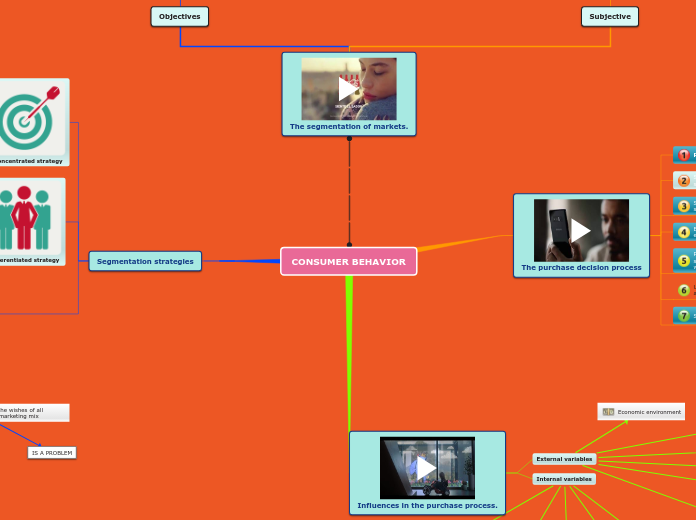The segmentation of markets.
Subjective
preferences
Benefit sought
SubtemPersonality: leadership, authority
Objectives
Specific
Purchase situation
1st purchase or repeat Place of purchase
intensity, variety, fidelity
General
Geographic criteria
Socioeconomic criteria
Demographic variable
CONSUMER BEHAVIOR
Segmentation strategies
Undifferentiated strategy
The drawback is that it can not satisfy the wishes of all consumers with the same product and marketing mix
IS A PROBLEM
HARD
The company does not consider differences between the different market segments and treats all of them with the same strategy.
The most important advantage is the reduction of the cost
Differentiated strategy
The drawback is the increase in production costs and commercial variables.
The main advantage is the increase in sales, the greater participation in the market and customer loyalty.
The company offers each segment the products it needs and the right marketing-mix
Concentrated strategy
The company only serves a few segments of the market
The advantage is that it achieves a high market share
but has the disadvantage of dedicating itself to very few segments, which is a great risk.
Influences in the purchase process.
Internal variables
Lifestyles
Learning
Behavior
Attitudes
Motivations
External variables
Family
Reference groups
Technological environment
Economic environment
Cultural environment
Social class
The purchase decision process
Satisfaction determines the occurrence of the repeat purchase.
Use of the product and post-purchase evaluation, whose study and knowledge of the behavior of the buyer
Purchase decision, acquiring the product or brand you have selected, this phase is usually given in the establishment, in which a seller influences.
Evaluation of the alternatives that suit you best among existing ones.
Search for information in order to find out what products or services exist in the market that meet your need.
Recognition of the problem or the need to satisfy

